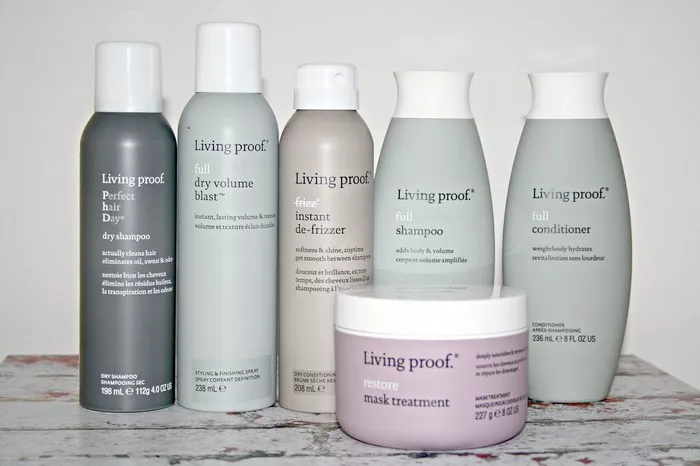Hair care products are an essential part of many people’s daily routines, helping to maintain healthy and vibrant hair. From shampoos and conditioners to styling gels and serums, these products often contain a variety of ingredients aimed at nourishing and protecting the hair. However, to ensure the safety and efficacy of these products, preservatives play a crucial role. In this article, we delve into the world of hair product preservatives, exploring their types, benefits, efficacy, and regulatory standards.
Explanation of Preservatives
Preservatives are substances added to products to prevent microbial growth, spoilage, and degradation. In hair care products, preservatives help maintain product stability and safety by inhibiting the growth of bacteria, fungi, and other microorganisms. Without preservatives, hair products can become breeding grounds for harmful pathogens, posing risks to consumers’ health and compromising product quality.
Types of Preservatives
Preservatives used in hair care products can be broadly categorized into two main types: synthetic and natural.
Synthetic preservatives, such as parabens, formaldehyde releasers, and phenoxyethanol, have long been utilized in the cosmetic industry due to their strong antimicrobial properties and cost-effectiveness. However, concerns have been raised about the potential health risks associated with some synthetic preservatives, leading to a growing demand for natural alternatives.
Natural preservatives, derived from plant extracts, essential oils, and other renewable sources, are gaining popularity among consumers seeking safer and more environmentally friendly options. These preservatives offer effective antimicrobial properties while being perceived as gentler on the skin and hair.
Benefits of Natural Preservatives
The use of natural preservatives in hair products offers several advantages over synthetic counterparts. Firstly, natural preservatives are often perceived as safer and milder, making them suitable for individuals with sensitive skin or allergies. Additionally, natural preservatives are biodegradable and more environmentally sustainable, aligning with the increasing consumer preference for eco-friendly products. Furthermore, natural preservatives may provide additional skincare benefits, such as antioxidant and anti-inflammatory properties, enhancing the overall quality of hair products.
Common Natural Preservatives
Several natural preservatives are commonly used in hair care products due to their effectiveness and safety profile. One such example is Grapefruit Seed Extract (GSE), derived from the seeds and pulp of grapefruit. GSE exhibits broad-spectrum antimicrobial activity against bacteria, fungi, and viruses, making it a popular choice for preserving cosmetic formulations. Another widely used natural preservative is Ethylhexylglycerin, a glyceryl ether derived from vegetable glycerin. Ethylhexylglycerin acts as a skin-conditioning agent while also providing antimicrobial properties, contributing to the preservation of hair products.
Preservative Efficacy
The primary function of preservatives in hair care products is to inhibit microbial growth and extend product shelf life. By preventing contamination and spoilage, preservatives help maintain the efficacy and safety of hair products throughout their intended use. Moreover, preservatives contribute to product stability, preventing changes in texture, color, and odor that may occur over time. Regular testing and evaluation of preservative efficacy are essential to ensure product quality and compliance with regulatory standards.
Consumer Safety
Ensuring consumer safety is paramount in the formulation of hair care products, and preservatives play a critical role in this regard. By preventing microbial contamination, preservatives help minimize the risk of infections and adverse reactions associated with contaminated products. Furthermore, preservatives support product consistency and stability, providing consumers with reliable and effective hair care solutions. However, it is essential to use preservatives responsibly, adhering to recommended usage levels and considering potential sensitivities or allergies among consumers.
DIY Tips
For individuals interested in creating their own hair products, incorporating natural preservatives is essential to ensure product safety and stability. When formulating DIY hair care products, it is crucial to select appropriate natural preservatives and use them at the recommended concentrations to achieve adequate antimicrobial efficacy. Additionally, incorporating ingredients with inherent antimicrobial properties, such as essential oils and botanical extracts, can enhance the preservation of homemade hair products. Proper storage and handling practices, such as using clean containers and avoiding water contamination, also contribute to product longevity and safety.
Regulatory Standards
The cosmetic industry is subject to various regulatory standards and certifications governing the use of preservatives in hair care products. Regulatory agencies, such as the Food and Drug Administration (FDA) in the United States and the European Union Cosmetics Regulation, establish guidelines for the safety and labeling of cosmetic ingredients, including preservatives. These regulations set maximum allowable concentrations for preservatives, mandate safety assessments, and require accurate labeling of ingredients to inform consumers about product contents. Compliance with regulatory standards ensures that hair care products meet stringent safety and quality requirements, instilling confidence in consumers and fostering transparency in the cosmetics industry.
In conclusion, preservatives are essential components of hair care products, playing a crucial role in preserving product integrity and ensuring consumer safety. While both synthetic and natural preservatives are used in hair products, the growing demand for safer and more sustainable alternatives has fueled interest in natural options. By understanding the types, benefits, and efficacy of preservatives, manufacturers and consumers can make informed choices to create and select hair products that meet their needs while adhering to regulatory standards.


